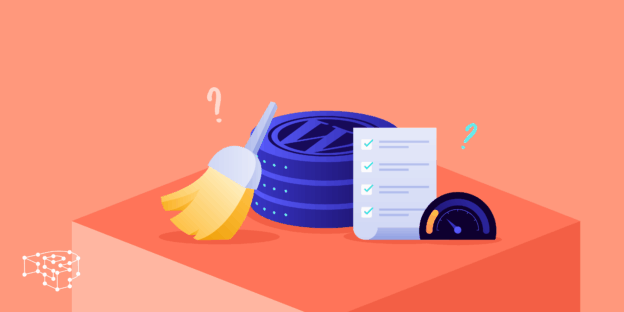As your WordPress website grows, the database can become bloated, leading to slower page loads, higher server resource usage, and potential crashes. Optimizing your WordPress database is essential for performance, scalability, and SEO.
This guide provides practical tips for database optimization on large WordPress websites.
Contents
- 1 1. Why Database Optimization Matters
- 2 2. Common Issues in Large WordPress Databases
- 3 3. Database Optimization Tips
- 3.1 Tip 1: Use a Dedicated Optimization Plugin
- 3.2 Tip 2: Remove Post Revisions and Auto-Drafts
- 3.3 Tip 3: Clean Up Spam and Trash
- 3.4 Tip 4: Remove Orphaned Metadata
- 3.5 Tip 5: Optimize Tables in MySQL
- 3.6 Tip 6: Manage Transients and Cache
- 3.7 Tip 7: Use a Scalable Hosting Environment
- 3.8 Tip 8: Regular Backups Before Optimization
- 4 4. Best Practices
- 5 FAQ
- 6 Related Posts
1. Why Database Optimization Matters
-
Faster page load times – Optimized queries mean quicker responses.
-
Better SEO performance – Site speed is a Google ranking factor.
-
Reduced server load – Less resource usage for hosting large traffic.
-
Improved backup efficiency – Smaller databases are easier to back up.
-
Long-term stability – Prevents crashes on high-traffic websites.
2. Common Issues in Large WordPress Databases
-
Accumulated post revisions and drafts.
-
Orphaned metadata from deleted plugins or themes.
-
Excess transients and cached data.
-
Spam comments or unapproved comments.
-
Fragmented database tables from frequent updates.
3. Database Optimization Tips
Tip 1: Use a Dedicated Optimization Plugin
Plugins simplify database maintenance without requiring technical knowledge:
-
WP-Optimize – Clean, compress, and schedule optimizations.
-
Advanced Database Cleaner – Remove orphaned data and optimize tables.
-
WP Sweep – Deletes unnecessary data and optimizes tables.
Tip 2: Remove Post Revisions and Auto-Drafts
-
Limit revisions by adding in
wp-config.php:
-
Delete old revisions using optimization plugins or SQL queries.
Tip 3: Clean Up Spam and Trash
-
Delete spam/unapproved comments.
-
Empty trash for posts, pages, and media items regularly.
Tip 4: Remove Orphaned Metadata
-
Orphaned meta data occurs when plugins are deleted but their database entries remain.
-
Plugins like Advanced Database Cleaner identify and remove orphaned meta, options, and tables.
Tip 5: Optimize Tables in MySQL
-
Use
phpMyAdminor plugins to run:
-
This defragments tables and improves query performance.
Tip 6: Manage Transients and Cache
-
WordPress uses transients for temporary data. Over time, these can accumulate.
-
Plugins or manual SQL commands can remove expired transients:
-
Combine with object caching (Redis or Memcached) for large sites.
Tip 7: Use a Scalable Hosting Environment
-
High-traffic WordPress sites benefit from managed hosting, VPS, or cloud hosting.
-
Consider database replication or separate database servers for large workloads.
Tip 8: Regular Backups Before Optimization
-
Always back up your database before cleaning or running SQL commands.
-
Use plugins like UpdraftPlus or BackupBuddy for automated backups.
4. Best Practices
-
Schedule automatic database optimizations weekly or monthly.
-
Limit unnecessary plugins and custom fields to reduce database load.
-
Monitor database growth with plugins or tools like Query Monitor.
-
Regularly review and archive old content instead of keeping everything live.
-
Combine database optimization with caching and CDN for maximum performance.
FAQ
Q: How often should I optimize my WordPress database?
For large websites, once a week is recommended, or at least monthly.
Q: Can database optimization break my site?
If done carefully with backups, no. Avoid manual SQL commands if unsure.
Q: Do caching plugins reduce the need for database optimization?
Caching helps performance but does not reduce database bloat over time. Optimization is still needed.
Q: Is it safe to delete old post revisions?
Yes. Limiting revisions improves database size without affecting published content.
Q: Should I optimize tables via SQL or a plugin?
Plugins are safer for beginners and allow scheduling. SQL works for advanced users or large-scale optimizations.
👉 Optimizing your WordPress database is essential for speed, scalability, and overall website health, especially for large websites. By cleaning unnecessary data, optimizing tables, and using caching strategies, your site will perform faster and handle more traffic efficiently.
